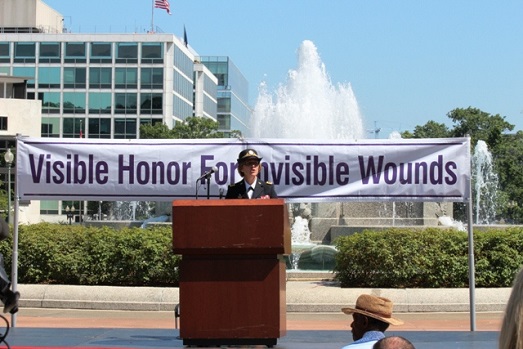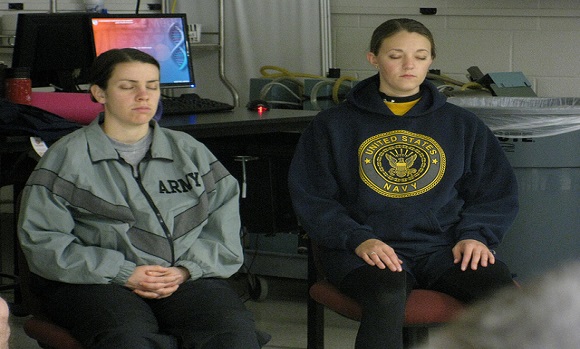
One challenge that victims of PTSD have to face is the judgment of other people due to misinformation. Because of the myths surrounding this medical condition, the relationships of the patient with his or her loved ones are often strained.
The prejudice and maltreatment of PTSD patients have been around ever since human beings started to wage wars against each other. Even though extensive research has already been conducted regarding the psychological effects of war on soldiers, there is still a lot to learn about PTSD. That is the reason why these myths are still proliferating.
So to help you better understand combat-related PTSD, here are several myths that were already debunked a long time ago:
Having PTSD means you are mentally weak
This myth is one of the oldest and most difficult to combat. Having this type of condition is not a sign of mental weakness, or even weakness of character. Aside from the internal strength of an individual, there are a lot of factors that can affect the development of PTSD. Examples of this are the type of trauma, circumstance, duration, and the number of traumatic events that happened throughout a person’s lifetime.
PTSD also occurs when the individual does not have a solid interpersonal support system. Sadly, a lot of war veterans do not get the support that they need because of social stigma and misunderstanding.
Any experience can be a traumatic one
It is true that a lot of events that happen to us can become stressful. However, there are still several criteria that need to be met before calling a certain event as “traumatic.”
The criteria are as follows:
- Being exposed to sexual violence or near death events that may lead to serious injuries.
- The person must directly or indirectly be involved in the traumatic experience, or he has witnessed it in person.
When you say indirectly exposed, this pertains to hearing and seeing the details of the traumatizing experience. An example of this one is the drone pilots. They may not be in the middle of the warzone, but they are still exposed to the horrors of the battlefield because of the things that they see and hear on the screen. In addition, they also enter and exit the war zone regularly.
A person can easily develop PTSD after being exposed to a traumatic incident
When faced with a traumatic experience, you can expect that you will be mentally, emotionally, and physically stressed. However, it does not mean that you will already develop PTSD immediately. In order to be diagnosed with this condition, the feelings of extreme fatigue, stress, or anxiety should last for more than a month. In addition, people who suffer from PTSD also find it difficult to focus on their work and personal life.
People who suffer from PTSD are automatically crazy and extremely dangerous
Class war movies and sensationalized news reports have taught us that war veterans suffering from PTSD are crazy and should be avoided at all costs. Keep in mind that this stereotype is entirely wrong. This type of condition should never be associated with psychosis and extreme violence. PTSD is mostly about abrupt mood changes and reliving distressing memories. Never use the word crazy when talking about patients suffering from this condition because it damages their reputation and stigmatizes them further.
People with this condition are completely useless in work environments
A lot of soldiers do not want to seek treatment for PTSD because they fear that they will lose their ranks in the military. This is also the same with other workers who have developed the same condition.
Sadly, what people do not know is that they can still keep their regular jobs while getting PTSD treatments at the same time. One should not be too scared when diagnosed with this condition because it is very manageable.
PTSD is easy to get over with as time goes by
Thanks to modern PTSD treatments, it is now easier for war veterans to return to their normal lives. However, this condition does not instantly go away once you take some anti-depressants. Sometimes, conquering PTSD is a life-long journey. While most people learn to cope on their own, a lot of patients still seek professional guidance every once in a while.
War veterans who developed PTSD are not considered as part of the “wounded soldiers”
That is because you cannot see any huge scars or other types of physical injuries. However, one should remember that veterans with PTSD have made a lot of sacrifices to protect the country. Psychological injuries are quite the same with the physical ones. Both are collateral war damages that are inevitable.
You cannot do anything for war veterans (or other people) suffering from PTSD
This condition is actually very responsive to treatment. And with the advancement of medical technology, there is currently a multitude of ways to treat PTSD. If your current treatment does not work for you, you can still choose other options like cognitive behavioral therapy or prolonged exposure treatment. Seeking help from a professional is the first step in choosing an option that works best for you.
PTSD only targets a specific age group
Keep in mind that children can also experience PTSD. But as discussed in Chapter 1, their symptoms may vary depending on their age.
You only need one treatment for PTSD
Not necessarily. The type and complexity of the treatment will still depend on the person suffering from this condition. If he is showing severe symptoms, it means that he may have to undergo different types of therapies. Doctors may also ask him to take several antidepressants.
Therapies never work
Therapies are effective at treating patients because it helps them understand what PTSD is all about. It also helps health professionals to assess the patient and develop ways to help them cope with their situation. With methods such as exposure therapy and cognitive behavior therapy, people with PTSD will learn how to face their fears and deal with bad memories in a healthier and safe manner.
Civilianized: A Young Veteran’s Memoir
In this dark humored War Memoir, Iraq veteran Michael Anthony discusses his return from war and how he defeated his PTSD. Civilianized is a must read for any veteran, or anyone who knows a veteran, who has returned from war and suffered through Post-Traumatic Stress Disorder (PTSD).
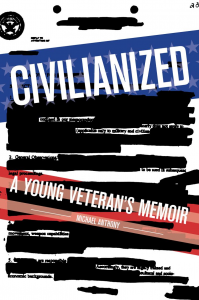 “An intense memoir.” -Kirkus
“An intense memoir.” -Kirkus
“I wont soon forget this book.” -Mary Roach
“A must read.” -Colby Buzzell
“[S]mart and mordantly funny.” –Milwaukee Journal Sentinel
“Anthony delivers a dose of reality that can awaken the mind…” Bookreporter
Order your copy of Civilianized: A Young Veteran’s Memoir .
Picture: Flickr/MilitaryHealth
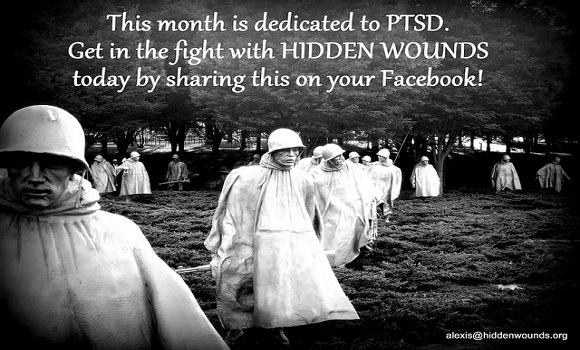

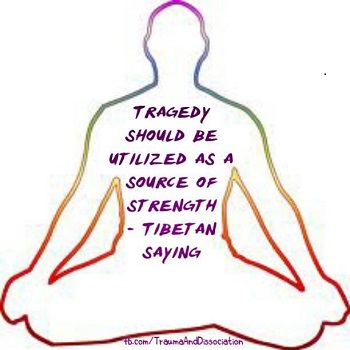 Contemporary Alternative PTSD Treatments…
Contemporary Alternative PTSD Treatments…